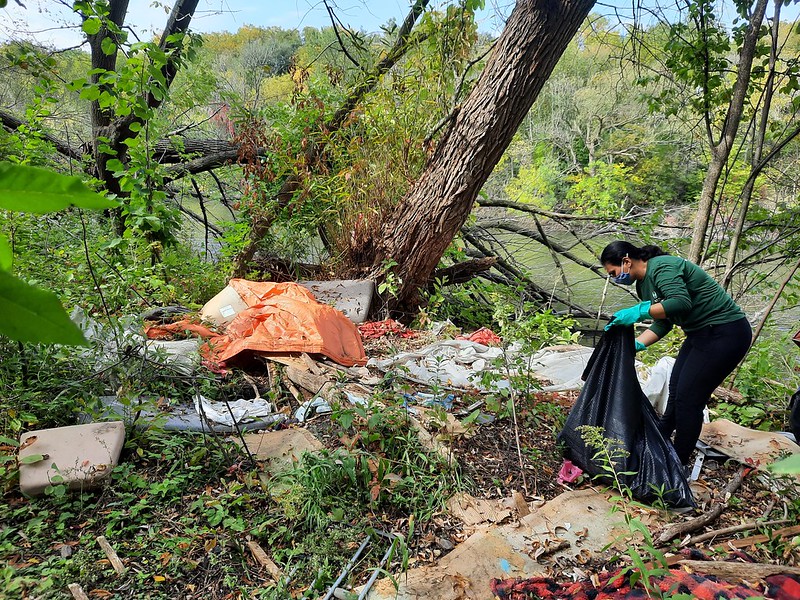Single-Use Plastics
Plastic Doesn’t Belong in Our Water
What is Single Use Plastic?
Single-use plastics are plastics that are made from fossil fuels and are meant to be used once and thrown away, like plastic bottles, wrappers, straws, and bags. Although these plastics are practical for some uses like medical, more than half is used for plastic packaging, much of which is used once and thrown away. 150 million tons or 10 million dump trucks’ worth of single-use plastics are used each year worldwide.
Why Should We Care About Plastic Disposal?
Both the production and disposal of plastic are incredibly harmful to both the environment and human health. The process of making plastic is very energy intensive. The plastic industry is responsible for at least 232 million tons of planet-warming emissions annually. That is the same amount as the average emissions released by 50 million cars each year.
When single-use plastics are disposed of, they never completely break down and go away, but instead become smaller pieces, commonly known as microplastics. They ultimately find their way into our rivers, lakes, and streams, severely harming the health of the water and the wildlife that resides there. 80- 90% of the garbage our River Adopters clean from the water is single-use plastic.
It is estimated that you will consume around 50,100 particles of plastic in your lifetime. To put that into perspective, that is like eating a credit card’s worth of plastic every week. Exposure to plastics can cause several harmful effects on human health due to the chemicals found in plastics. These effects include hormonal imbalances, reproductive problems like infertility, and even cancer.
What Can You Do to Reduce Plastic Pollution?
There are many ways to reduce your reliance on single-use plastics.
- Take the pledge to go plastic-free, and join the Plastic Free MKE movement in Milwaukee.
- Research alternatives for single-use plastics and try to make a few swaps!
- Support Lake Friendly Businesses in Milwaukee.
- Become a River Adopter to help clean plastics out of our waters.
- Donate

River Adopter cleaning plastics and other trash from our waterways.
What Does Riverkeeper Support?
We advocate for an Extended Producer Responsibility policy approach for single-use plastics, shifting responsibility to the producer, rather than the consumer. We also continue to support the Break Free from Plastic Act, which aims to reduce throwaway plastics, enact producer responsibility, and reduce new or expanded plastic production.
